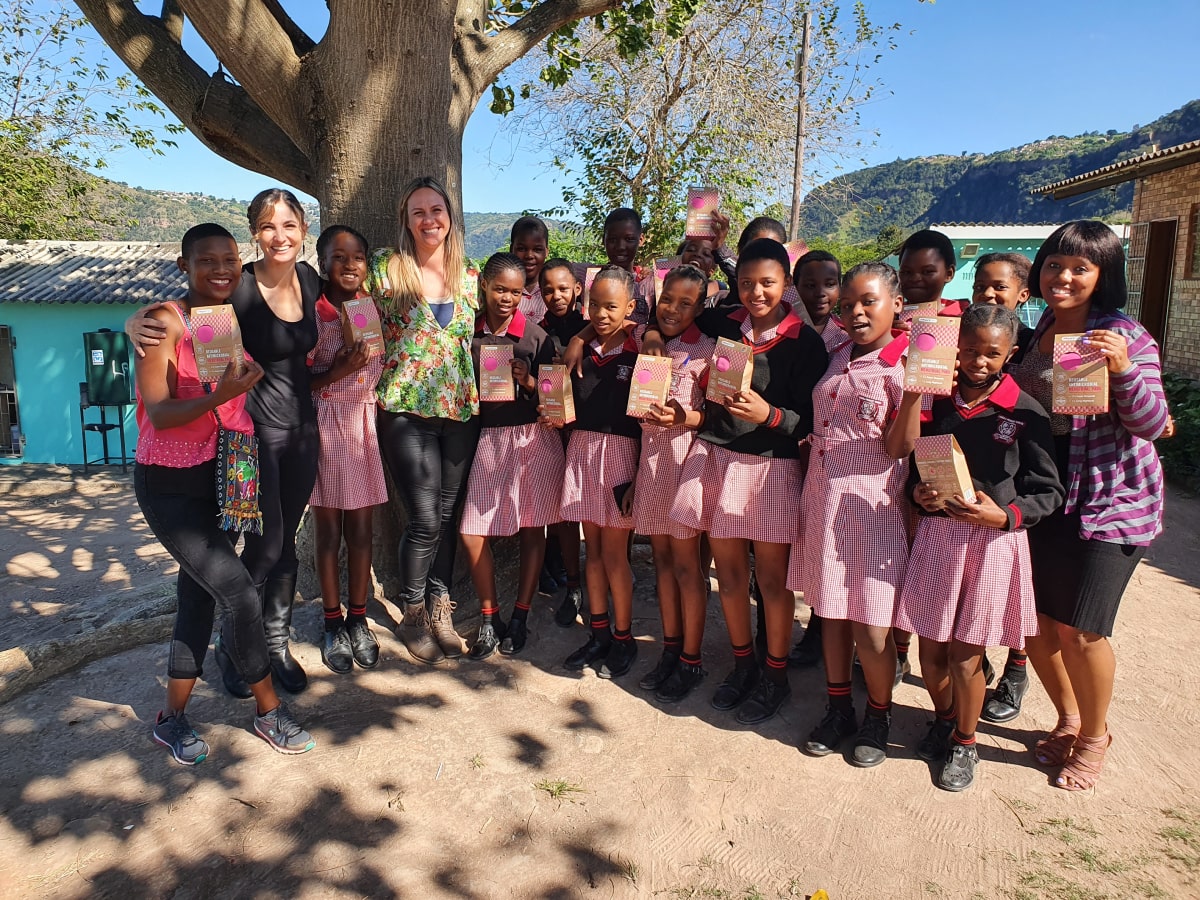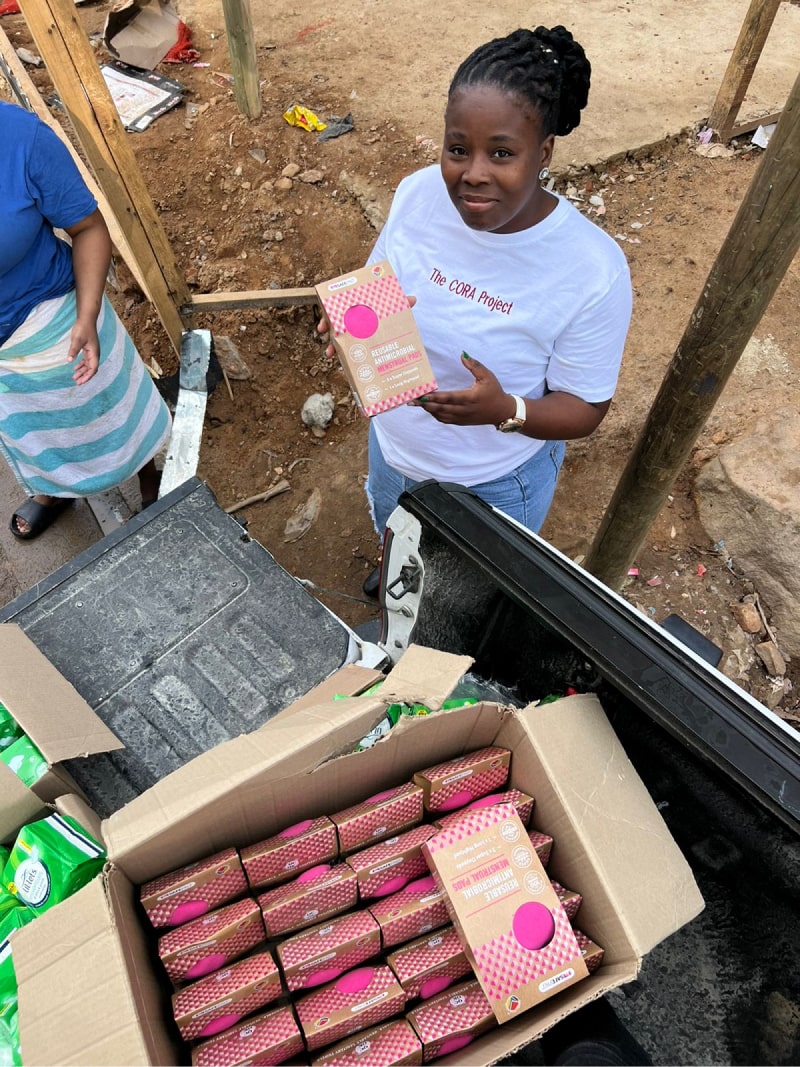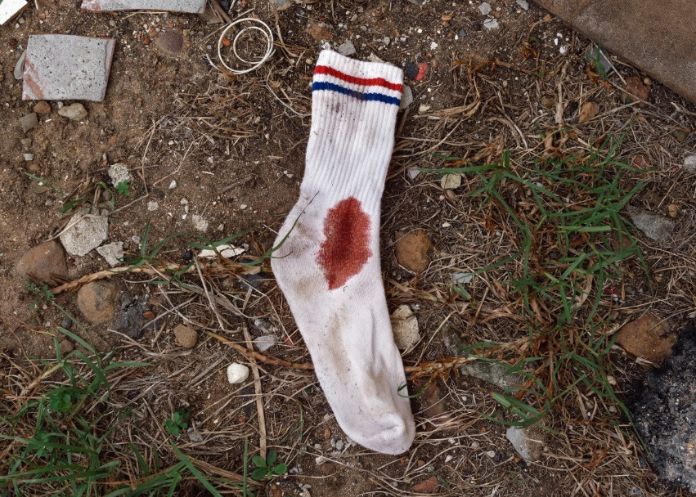Period poverty is rife in South Africa. But before we can address the situation, we first need to understand what period poverty is.
What is period poverty? Imagine not having access to menstrual products and having to substitute a pad for a sock just so that you can attend school… Now stop imagining because this is a reality.
Menstruation is a natural part of every young woman's life when she transitions from a girl and blossoms into womanhood. Many women menstruate from the age of 12 for an average of 40 years of their lives. Due to the inequalities in South Africa, not all women have access to menstrual hygiene products. The problem is particularly prevalent in schools where girls sometimes miss out on classes due to not having the available funds to purchase the sanitary products they need to support them in their daily activities like attending class.
Roughly 500m women and girls worldwide do not have what they need to manage their menstruation, according to a study done by FSGImpact. According to research done by Mbali Phala from the Daily Vox, in 2016, the number of girls missing school due to the effects of period poverty is just shy of 7m. The average woman uses roughly 11 000 tampons in her lifetime, which translates to R19 800 just to manage her period. And with most South Africans living below the poverty line still, it is not hard to understand just why school dropouts and absenteeism are so high among girls.
What are the alternatives?
The issue of period poverty is not a new struggle. Girls and women across South Africa have learned to rely on ‘alternative’ solutions like using socks, rags, old shirts, newspapers, etc. just to go to school. These ‘alternatives’ are very unsanitary and unreliable, resulting in accidental leakage and heightened risks of developing vaginal infections which could in turn result in additional health complications and the loss of more valuable days of school.
It is this vicious cycle that makes period poverty such a big problem.
This is not a sock
Research has shown that the low level of funding and support in this sector is not due to a lack of agreement around the benefits, but rather an uncertainty around which programmes to support. Safepad, founded by SAAGE, aims to alleviate the struggle with the ‘This is not a Sock’ campaign, aimed at reaching 2 000 girls across the country.
The campaign aims to not only provide each girl with a pack of Safepad reusable pads but also to break the stigma about the myths and taboos surrounding menstruation by providing essential education on proper menstrual health and hygiene. In order to reach communities across South Africa, they are partnering with NGOs (like Periods for Hope, Kero Community Development Enterprise, Helping Hands CBD, and Ladles of Love) nationwide to distribute the donations and education to those in need.

Why Safepad?
One of the things women have in common despite background, culture, race and religion is the menstrual cycle. During menstruation there are three things that most women agree on: they want a product that is comfortable, safe and trustworthy. SafepadTM is a one-of-a-kind reusable sanitary pad designed with a permanently bonded antimicrobial technology which provides a safe and infection-free experience while in use without compromising on comfort.
Each Safepad is proudly manufactured in South Africa from a soft, yet durable, polyester material and is the first pad globally to introduce an antimicrobial treatment. The antimicrobial technology is based on a treatment that leaves a positively charged layer on the fabric. This layer will attract and kill the negatively charged microbes, like bacteria and fungi. The treatment is permanently bonded and does not get consumed over time. Nor does it not contain any harmful chemicals that could potentially harm the natural microbial fauna of the female vagina.
Thanks to the antimicrobial technology, each Safepad can even be washed in unclean water at no risk to the user. Each Safepad can be reused with an approximate lifespan of four to five years. This makes it easy to use and clean. Learn more about Safepad here: https://safepad.co.za/

What can you do?
This is not a Sock will be collecting donations from 9 August until 30 September. By donating just R180, you’ll sponsor a box of 4 Safepad reusable pads (3 x Super Daypads that can absorb ± 20 ml (light to medium flow) and 1 x Long Nightpad that can absorb ± 25 ml (heavy flow)), the ‘My First Period’ booklet and you will give someone a sustainable, hygienic, and safe solution that will last at least four years.
Companies & organisations that donate to the campaign will receive a tax deduction certificate. If you are in a position where you cannot donate at the moment but would still like to take part in this campaign, you can help by spreading awareness and sharing posts and updates about the campaign with your friends and family on social media or by word of mouth. Click here to find out more and to donate towards this cause: https://bit.ly/This_is_not_a_Sock.
Issued by Safepad

